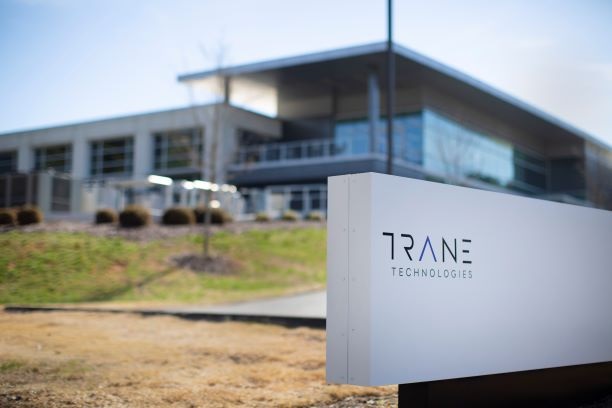Trane Sources Low Carbon Steel for HVAC Products

HVAC and climate control solutions company Trane Technologies announced today purchase agreements for low-carbon steel from U.S.-based companies Nucor and U.S. Steel. The agreements will cover 20% of Trane’s annual steel purchases.
According to the company, the steel will be used in U.S. manufacturing to build high-efficiency heat pumps and air conditioners for homes, and thermal management systems for commercial buildings.
Steelmaking is one of the biggest emitters of CO2 globally, with total greenhouse gas emissions (GHG) from the sector accounting for 7% – 9% of direct emissions from the global use of fossil fuels.
Trane said that the low-carbon steel from the new purchase agreements will be nearly 80% less carbon intensive than traditional blast furnace steel, resulting in reduced carbon emissions of almost 16,000 metric tons annually, and 120,000 metric tons by 2030.
Trane’s climate goals include a target to reduce Scope 3 emissions, or value chain emissions outside of tis direct control, by 55% by 2030, as well as goals to achieve a 97% reduction in emissions per cooling ton from use of the company’s products, and a 90% reduction in GHG emissions across its global operations by 2050. Scope 3 emissions, including use of products and supply chain, make up the vast majority of the company’s carbon footprint.
The company is also a member of the SteelZero initiative, with signatories committing to procuring net zero steel for 50% of their steel needs by 2030, and 100% by 2050.
Dave Regnery, chair and CEO of Trane Technologies, said:
“Sustainability is at the core of our strategy, and we’re excited to take another step forward in our journey to net-zero HVAC solutions. Our partnerships with Nucor Corporation and U. S. Steel will make our products even more sustainable as we continue to decarbonize our full value chain – from the raw materials we use, to our own operations, to the lifecycle impact of our products and services around the world.”
The post Trane Sources Low Carbon Steel for HVAC Products appeared first on ESG Today.